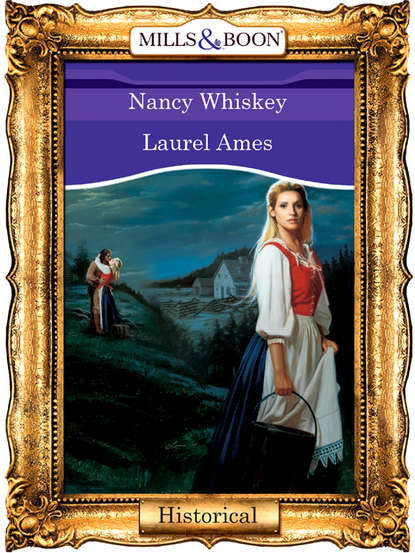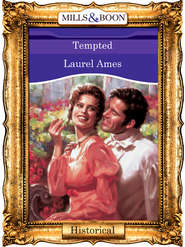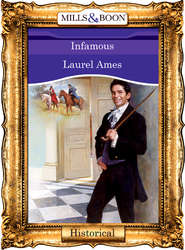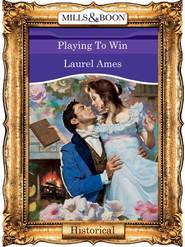По всем вопросам обращайтесь на: info@litportal.ru
(©) 2003-2024.
✖
Nancy Whiskey
Настройки чтения
Размер шрифта
Высота строк
Поля
“Oh, I see, the main part of your business is not with England then. Is it worth it?”
Trueblood passed over her first remark to answer, “Not according to Daniel, but I find so much to interest me in the way of plants I would enjoy the trip even if we made nothing.”
“We were discussing herbs on the ship,” Nancy confided to Mrs. Cook. “But I had thought Trueblood’s interest entirely culinary.”
“Trueblood knows a great deal about healing herbs, as well,” Mrs. Cook said with a nod of approval.
“I have brought some dried ones from home—fennel, mint, tansy and the like. Also some seed. But I know nothing about what I might find growing here.”
“European herbs were introduced so long ago only my people know which ones are native,” Trueblood said proudly. “That is why I have been cataloging them and describing their uses. I have been told I can draw, so I have illustrated a volume to be published in London.”
“Oh, so that was why you were in England,” Nancy said, as though this were a matter of great concern to her.
“Yes, that was it.” Trueblood downed another cake.
“You should see his drawings.” Mrs. Cook beamed as she refilled Trueblood’s cup.
“We have many plants in common now, of course,” Trueblood continued. “Comfrey, foxglove, mint, yarrow…”
“Is there a place to come by a supply of Peruvian bark and some rhubarb, as well? I have not much with me.”
“I can get you a supply of Peruvian bark at the apothecary’s shop,” Trueblood volunteered.
“I have rhubarb in my garden, dear,” Mrs. Cook replied.
“Are you indeed practiced enough in the healing arts to use such things?” Trueblood enquired.
“Oh yes. You see, I have always thought my father would take me off to war with him, so I have studied all manner of fevers and know how to treat wounds. But in Somerset, most of the time I was called on to attend birthings. I must say, I like that better than illnesses, for usually the outcome is good even if the woman has had a difficult time.”
“It does not frighten you, being unmarried and all?” Mrs. Cook asked in a confidential tone.
“It did at first, but the people there are poor. If they had any money they would spend it on food, not on an apothecary. They never blame me if someone does not recover. They know I have done my best.”
“So you have lost…patients?” Trueblood asked, staring at her with those penetrating dark eyes.
“Three. Two mothers to fever and one baby, but he was short-term. I doubt anyone could have saved him,” Nancy said sadly.
“We have seen nothing like the yellow fever that has seized upon the city this summer,” Mrs. Cook offered.
“Describe the symptoms to me,” Nancy prompted as she took a sip of tea. “I have heard of it and had thought it no more than another sort of ague.”
“Violent fever and delirium, and the poor sufferer turns all yellow. That’s why they call it the yellow fever.”
“Jaundice? That is not consistent with the ague.”
Trueblood had been about to pick up another cake when Mrs. Cook continued, “The worst part comes when they start to vomit up the black blood, pints of it….”
“Internal ruptures, then. How many survive?” Nancy asked between bites of cake.
Trueblood decided against the cake and merely stirred his tea.
“Depends how hard they are taken with it. I know many who have survived.”
“I should like to talk to them. Do you suppose an application of leeches—”
Trueblood dropped his spoon into his saucer with a clatter. “Excuse me, I just remembered a pressing errand.” He exited the room and closed the door softly behind him.
“You know, I do not believe he was feeling quite well,” Nancy confided to Mrs. Cook.
“Possibly the sea voyage. Or it may take him a few days to adjust to our climate again.”
“Hmm,” Nancy said, thinking of Trueblood’s exertions of the past hours and why a discussion of illness would bother him. She could only think he did not like to mix such things with his food, which he plainly enjoyed. She would remember that. She wondered if Daniel had to play second best to Trueblood everywhere; Mrs. Cook clearly held the younger brother in more esteem. Nancy supposed so, since Daniel took the slights with resignation rather than resentment, almost as though it did not matter, in the face of more important issues. And what could be so important? That packet surely was not just commercial papers. Daniel was an extremely complex man and Trueblood was merely a part of his disguise, a distraction for anyone who might suspect he was up to something. She let her mind wander pleasantly over all the things she imagined Daniel might be up to.
Daniel had been admitted to a prosperous-looking house on York Street, then let into the library by a retainer who knew him on sight. As the room was empty, Daniel seated himself, then stood with a groan and proceeded to pace the room. Trueblood had bandaged his leg tightly again, but the wound looked to have broken open from the walking, for there was a growing bloodstain on his clean breeches. He was just applying another handkerchief to this when a middle-aged man entered the room and came to shake his hand.
“Daniel, good to see you. Why the devil are you limping?”
“Hello, Norton. Our ship was captured by a French privateer. I took a splinter.”
“God’s death. That was close. Is your brother all right?”
“Fine. Yourself?” Daniel sat with a grunt, as Norton motioned him to a chair.
“I had the yellow fever last month,” Norton said as he poured them each a brandy from the decanter on his desk. He handed a crystal goblet to Daniel. “Not a bad case by all accounts, but it nearly did me in. Tell me what is going forward in England.” Norton pulled his desk chair around to face Daniel.
“Little of interest to us, and except for a certain street in London, little climate for inciting rebellion on the American frontier.”
“You are assuming Britain has some control over the situation. They can no more control Canada at this great distance than they could control us. Witness Dorchester’s inflammatory speech to the Indians.”
“The English are as surprised by the antics of the Governor General of Canada as we are.” Daniel took a swallow of brandy. “They might not be unhappy if he did manage to incite the tribes to harass us. They will even turn a blind eye to the encroachment of Canadian forts on American soil, but will not, I think, go so far as to declare war.”
“Not yet, anyway, so long as we are neutral and the balance of trade with us is favorable.”
“I really think they make more profit off of us now that they bear no responsibility for us.”
“They certainly do off the shipping they capture and confiscate. That, too, could lead us into war if we are caught between two belligerent sea powers.” Norton glanced at Daniel’s leg. “Have you any unofficial dispatches?”
“Yes, here. I hope they are worth Trueblood’s swim, but I could not afford to be caught with them.”
Norton chuckled and plied his letter opener. “You are quite a pair, you and Trueblood. It would be a load off my mind if the British were planning nothing. Then I would have only the Canadians, the French and the Spanish to worry about. We believe they are all causing unrest on the frontier.”
“Perhaps even Secretary of State Hamilton,” Daniel suggested.
“Hamilton may be short-sighted, but the money for the war debts must come from somewhere. The whiskey tax is necessary. But is the tax the only cause of unrest? That is the question,” Norton added, breaking the seal on the first dispatch and tossing the paper aside after a quick perusal.
“The Canadians have always supplied the Indians with weapons. There is no need to further incite them. Watching their land being nibbled away takes care of that.”
“I see. You empathize with the natives as well. Trueblood’s influence?”








